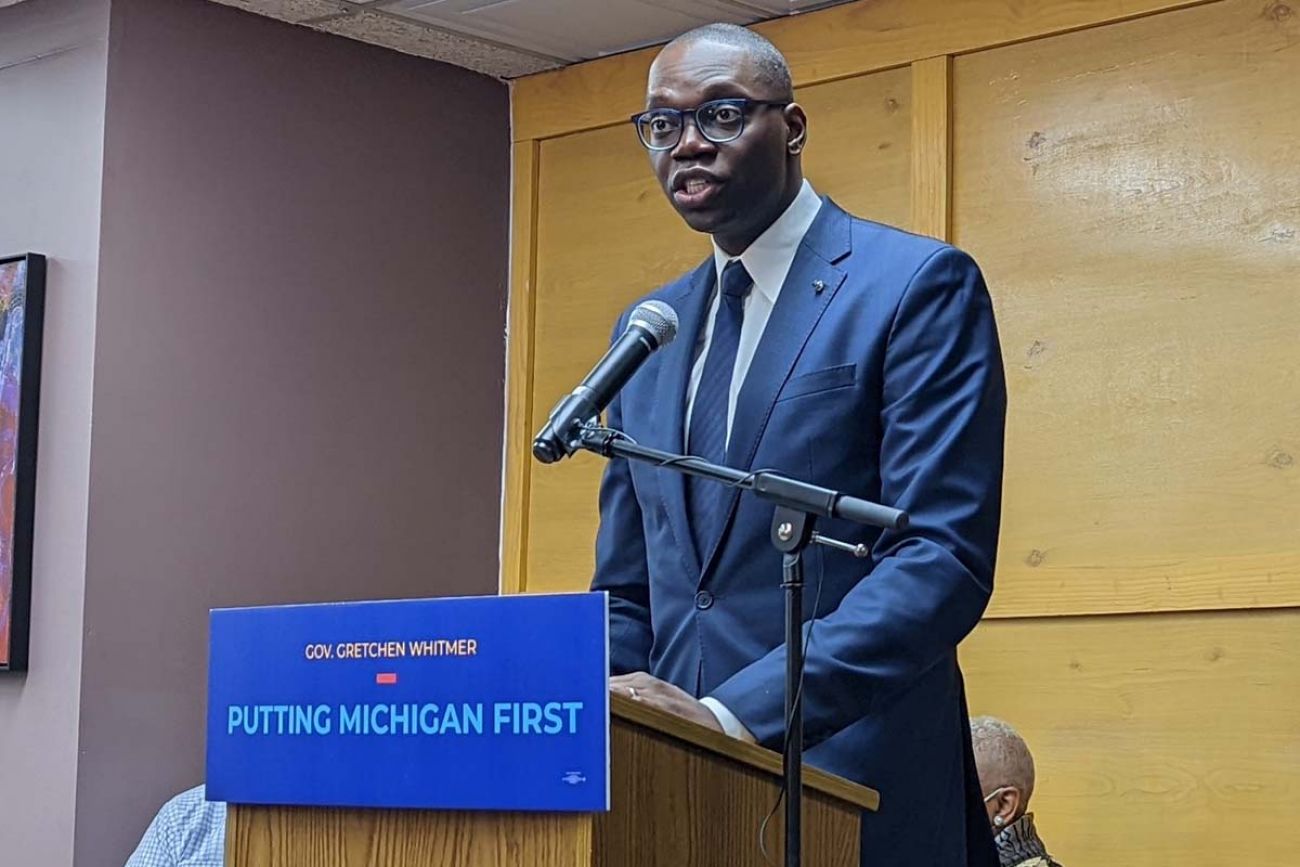Michigan closes gap on racial disparities in COVID-19 deaths

DETROIT—In the earliest days of the coronavirus pandemic, African-Americans in Michigan represented four of every 10 COVID-19 deaths, a startling number given they make up 14 percent of the state’s population.
The tragic trend took advantage of the health disparities afflicting communities of color: Blacks are more likely to suffer from heart disease, diabetes, obesity and other ailments that made them more susceptible to COVID-19.
Now, nearly two years after the pandemic began, those disparities have nearly vanished, with Blacks now at 18 percent of all COVID-19 deaths. That’s still above their makeup within the state but it’s half the rate from the pandemic’s early days.
Related:
- Angry Up North: scars linger after Michigan school mask mandates end
- Michigan State University to relax COVID-19 mask mandate
- Michigan state employees won’t have to mask at work starting Thursday
According to a new report from a statewide task force created to address racial disparities, state and local leaders worked with public health professionals to change behaviors to help protect entire communities.
“We felt we had no choice but to act,” Lt. Gov. Garlin Gilchrist said Friday at a press conference to announce the report and its findings. Gilchrist, who led the task force, said he lost 27 family members and friends to COVID-19.
“Michigan families were losing brothers, sisters, husbands, wives, cousins, teachers, students and grandparents. And communities of color cannot afford for us to wait.”
Gilchrist and others said the task force focused on encouraging people early in the pandemic — long before vaccinations — to wear masks and social distance. They specifically reached out to people in exposed occupations like public transportation employees who had to work in-person and were often face-to-face with dozens of people a day.
Thomas Stallworth, a senior advisor to Gov. Gretchen Whitmer who directed the task force, said the state talked with employers and explained the importance of masking and other preventive measures to benefit their employees.
“They had to take steps to protect their folks and they did,” Stallworth said.
Those efforts appeared to work. A survey taken by the state in 2020 showed that African-Americans were far more likely to wear masks. The survey showed 81 percent were “always” wearing them, compared to 69 percent of everyone else, according to the report.
Those changes may have helped change the arc of the pandemic: Through August 2020, Blacks comprised 39.2 percent of COVID-19 deaths, according to a Bridge Michigan analysis of state demographic COVID-19 data. Since then, they’ve comprised 13.9 percent — almost exactly their proportion within the state.
That’s despite Blacks having the lowest rate of vaccinations in the state. While 53 percent of white residents have completed vaccination, 40 percent of Blacks are fully vaccinated, according to the state. The unvaccinated account for over 80 percent of COVID-19 deaths since Jan. 1, 2021.
Stallworth said the task force is continuing to work to improve vaccinations among minorities, who have cited distrust in medicine among a host of reasons.
In addition to noting steps already taken — like promoting masks and vaccines and helping more people connect with doctors — the task force also made recommendations that would continue improving health prospects for communities of color.
Among its recommendation, the task force calls for:
- Lowering the number of people who are uninsured or underinsured, because the uninsured are less likely to have health conditions treated, making them more susceptible to COVID-19 and potential future viruses.
- Continuing to fund neighborhood vaccination and testing sites. Easier access to the sites improves the likelihood of getting tested or vaccinated, officials said.
- Maximizing use of school-based clinics. The state started a pilot program with the Detroit public schools to offer vaccinations to students with parental consent, Stallworth said.
- Improving access to high-speed internet. During the pandemic, many people stayed in contact with healthcare providers via telemedicine calls. Because many people in poverty do not have those resources, the task force said the state has spent over $23 million to help put laptops in homes and train people in how to use them.
As much as the task force was focused on improving outcomes related to COVID-19, it also looked at making long-term improvements to help minimize the health disparities that already exist.
Dr. Natasha Bagdasarian, the state’s chief medical executive, said COVID-19 provided the impetus to make changes that affect people today and in the future.
“This is probably not the last public health emergency,” she said. “So the goal … is to shore things up.”
See what new members are saying about why they donated to Bridge Michigan:
- “In order for this information to be accurate and unbiased it must be underwritten by its readers, not by special interests.” - Larry S.
- “Not many other media sources report on the topics Bridge does.” - Susan B.
- “Your journalism is outstanding and rare these days.” - Mark S.
If you want to ensure the future of nonpartisan, nonprofit Michigan journalism, please become a member today. You, too, will be asked why you donated and maybe we'll feature your quote next time!








